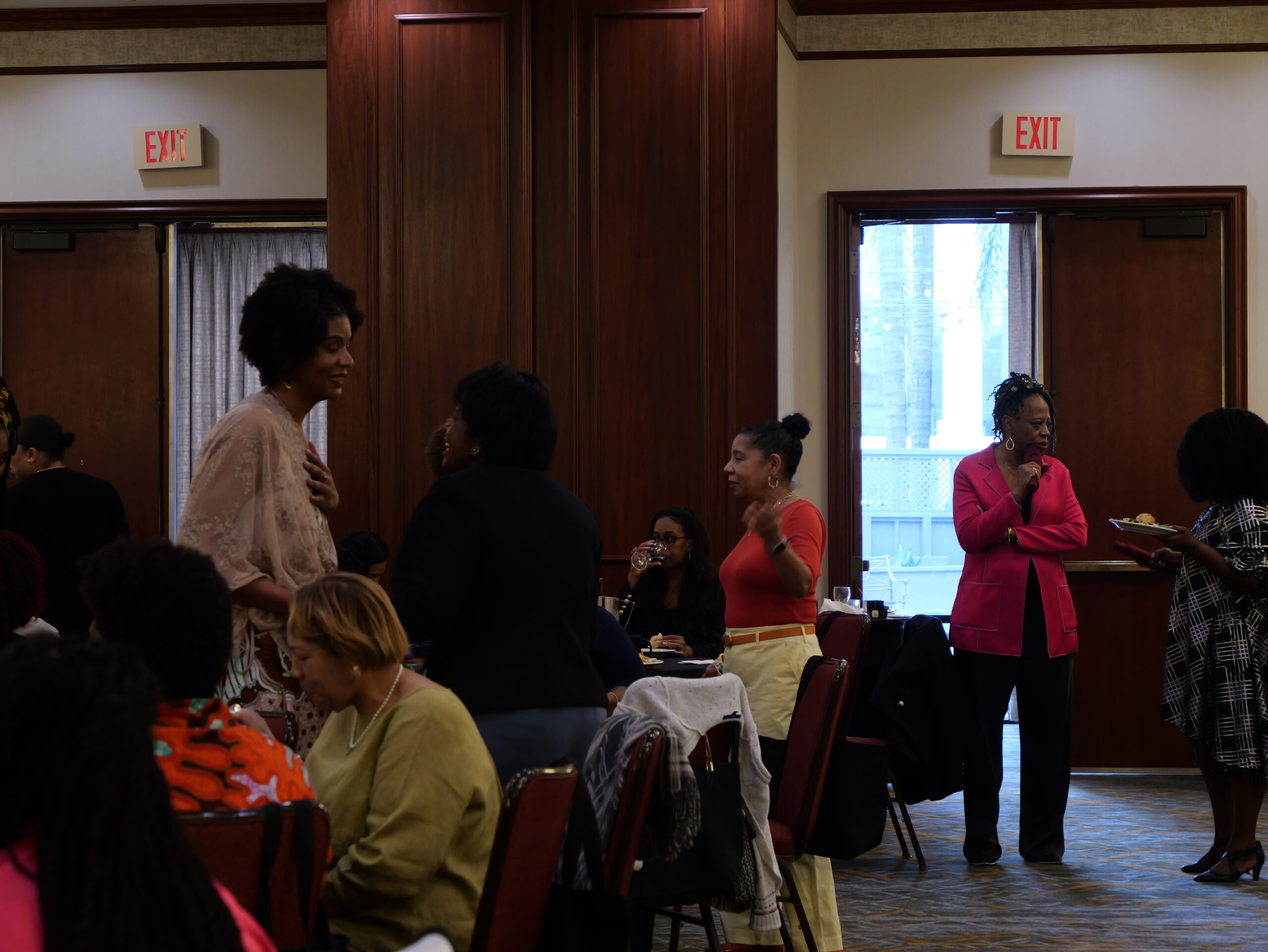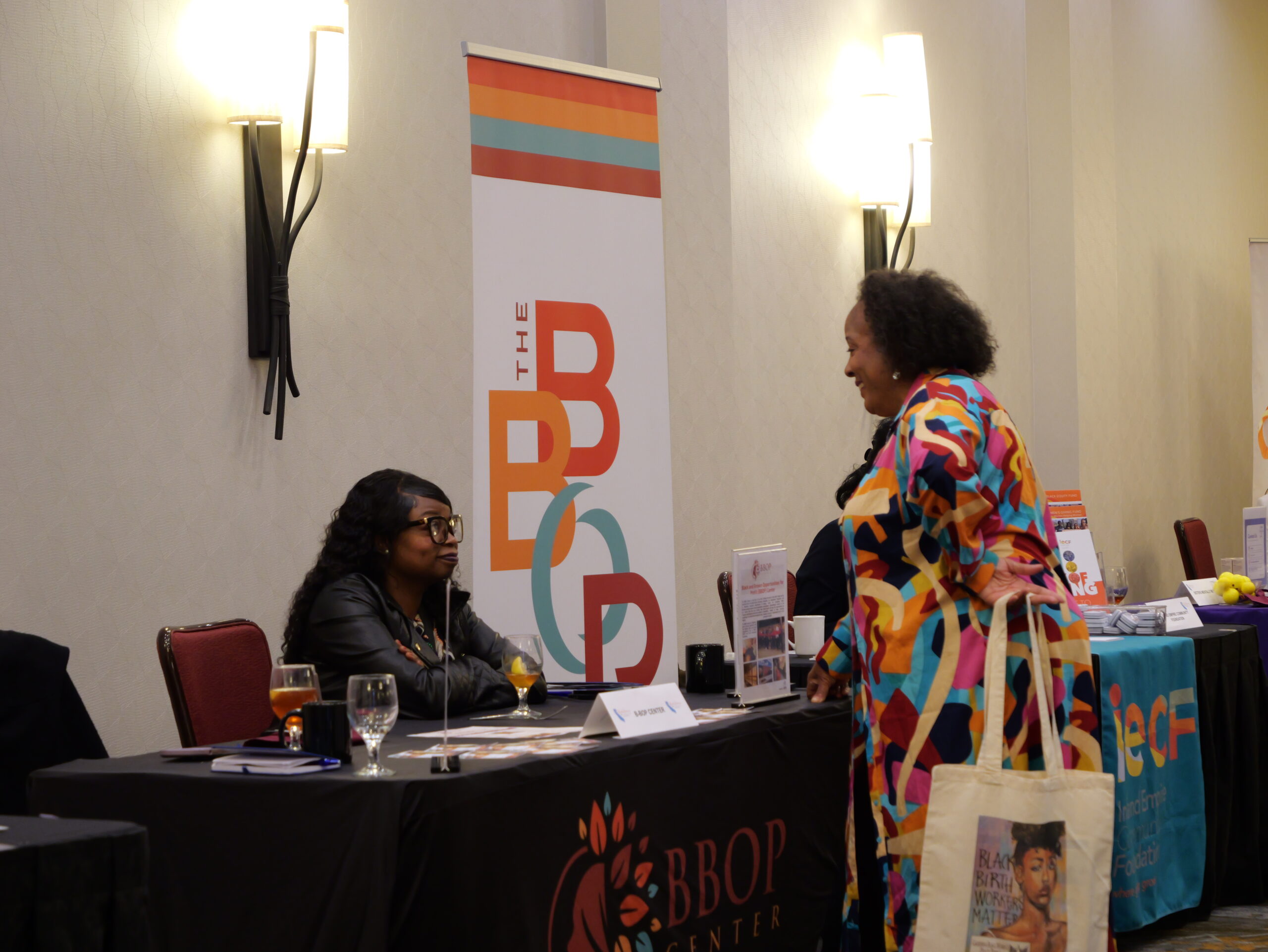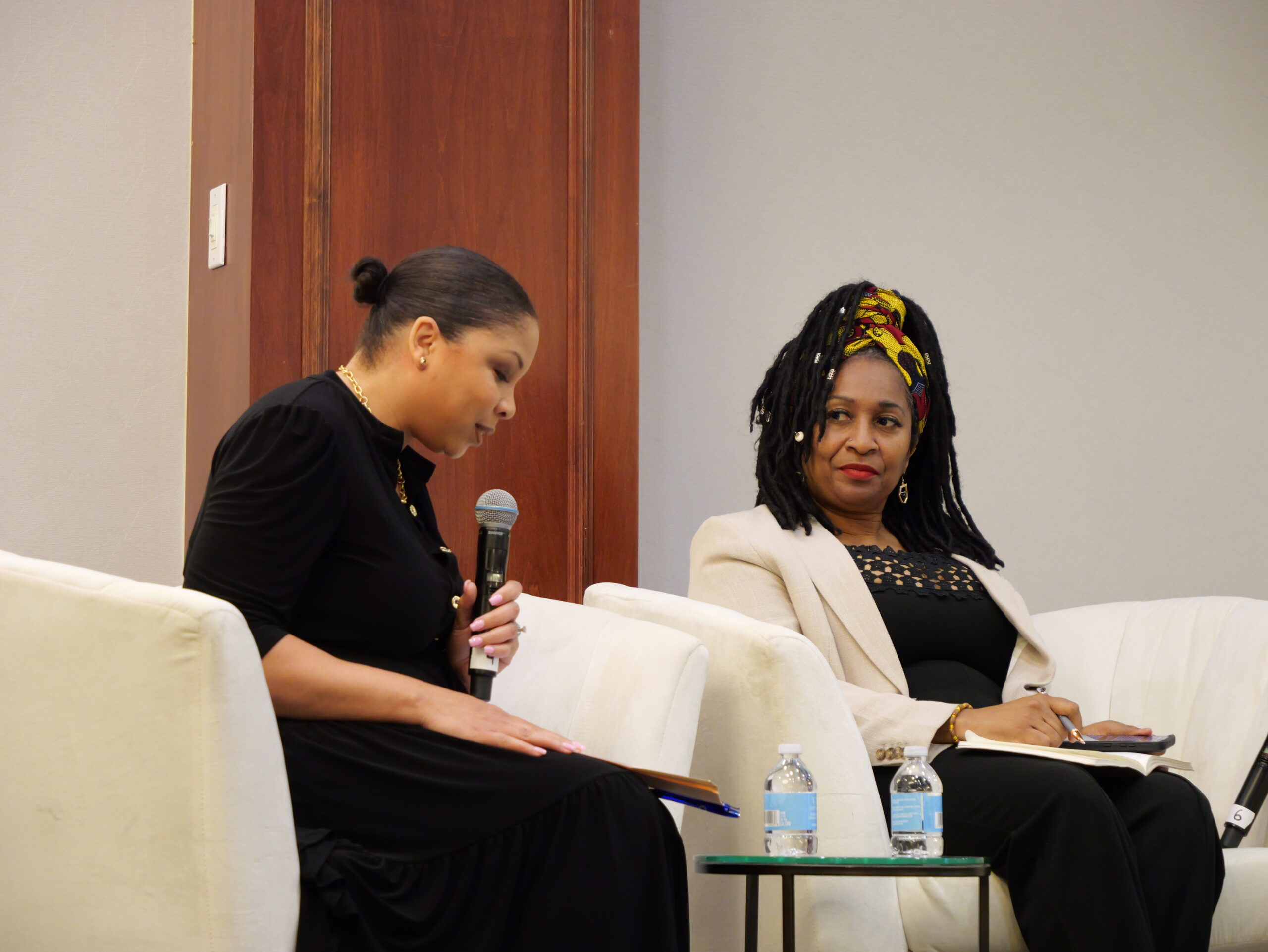The California (CA) Black Women’s Collective Empowerment Institute is currently in the middle of a tour across the state of CA, and recently stopped in the Inland Empire. The tour, entitled, “A Conversation for Black Women Tour – Building an Economic Action Plan” had a stop which took place Saturday, Feb. 24 from 9 a.m. – 1 p.m. at the Marriott Riverside. The purpose of the tour was to “empower Black women with information to improve their economic status.”

The goal of the CA Black Women’s Collective, according to Chief Administrative Officer of the California Black Women’s Collective Empowerment Institute, Charles Williams, is that they are “focused on improving the lives of Black women and girls here in the state of California.” They do this through their fiscal sponsor, California State University Dominguez Hills, utilizing their research and information in order to do so.
In one of the studies that was conducted by the collective, after interviewing 1,258 Black women across the state of California, they found that “2 in 3 Black women who are employed are primary breadwinners” but also that “40% of Black women report that racism and discrimination has limited their income.” Williams elaborates on the data, explaining that “[Black women] are struggling with their finances, and they’re looking for a way to equalize the playing field for themselves … That’s one of the things we want to help through education and knowledge sharing, providing opportunities and resources.”
Upon entry, people were welcomed inside and would settle down at one of the many tables, with around eight to ten people per table. Prior to the speaker panel, many took the time to walk around and network with one another, introducing themselves to their table neighbors, or snacking on some of the fruits and juice that was offered.

At the back of the room, many community organizations were tabling to provide attendees helpful information as well as local resources. In attendance were BMO, a banking service and one of the event sponsors, The Black and Brown Opportunities for Profit Center, an “economic hub” located within the Inland Empire whose purpose is “to eliminate racial and gender inequality” by providing women of color access to the materials they need to succeed, California Black Women’s Health Project, a non-profit dedicated to “amplifying the missing voices of Black women” in the health advocacy community, the Inland Empire Resource Center, a non-profit which works to assist and educate people on their home buying journey, Black Chamber of Commerce Inland Empire, who announced various events taking place and resources they have to offer and the Inland Empire Community Foundation, who explained to attendees the various funds that they were promoting such as the IE Black Equity Fund and the Women’s Giving Fund.
According to Williams, when looking for organizations to table at the event, they looked for “vendors or partners that could add benefit, like BMO or Chamber of Commerce, that can help businesses. We look for those [who] can partner with us and bring tools and resources to attendees to help them move forward with their economic action plan.”
Around 9:45 a.m., a panel discussion revolving around matters concerning economic equity began. The panel featured prominent individuals such as Kimberly Goode, Chief Communications and Social Impact at BMO; Wendy Gladney, coach, consultant, speaker and author; Tonya Burke, Director of Apprenticeship and Work-Based Learning at Mt. San Jacinto College; Tammy Martin-Ryles, president of the Black Chamber of Commerce Inland Empire; Hilda Kennedy, founder and president of AmPac Business Capital; and was moderated by Regina Wilson from CA Black Media.
Many topics were discussed during the panel, with speakers discussing what an economic action plan looked like to them, how to transform side hustles into a business and what kind of advice they would give to Black women in roles they normally do not see themselves in. These topics were accompanied by personal anecdotes, tricks of the trade that they had picked up over time and emphasized the concept of lifting community voices and experiences in order to support one another.
The panel was then opened up to the audience who had the opportunity to ask questions to the speakers, with some even sharing their own testimonies and organizations that they are a part of. One audience member shared that “one of the things that I love about spaces like this is that I see the possibilities of what we can become,” and she felt empowered through her involvement in spaces like this event. She then asked the people in the room to reflect on what happens after they leave the room, and asked them to move forward together, to not only leave the room with business cards in hand but to meet up and uplift one another regularly.
Another audience member shared that the Inland Empire Black Women’s Collective is now an organization which has existed for a little over a year. She shared plans that they held to reach out to the community and find out what the needs of Black women are in the area, and promoted their pillars of leadership, politics, health, education and economics. The goal of the organization is to find Black women who are interested in working collectively in these areas.

Many more people spoke after that, getting feedback and tips from the panel speakers up at the podium, as well as connecting with various members of the audience. Sharing their experiences of what it was like to be a Black woman entrepreneur, the struggles they had to overcome in order to grow their businesses, as well as how they worked to get support in their workplaces. During this time, people slowly began to take a break to eat lunch, and would return to these discussions at their respective tables.
Williams also shared some future plans that the Collective has, stating, “we’re having a trailblazer award [that] we’re honoring significant women in the state. It’s a pretty large event that we’re having in Los Angeles at the Wilshire Ebell Theatre. That’s an opportunity for us to bring recognition to women that have been very inspirational in the state.”







